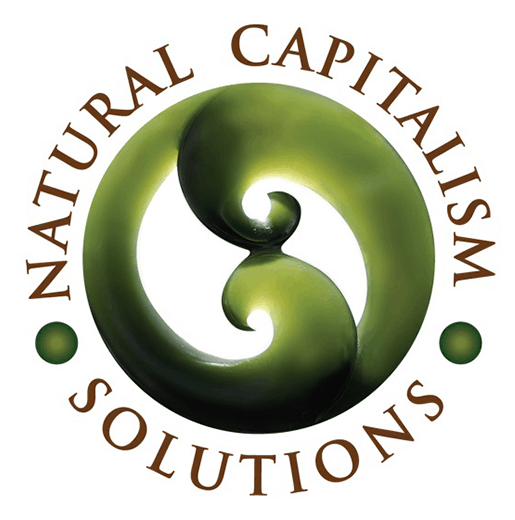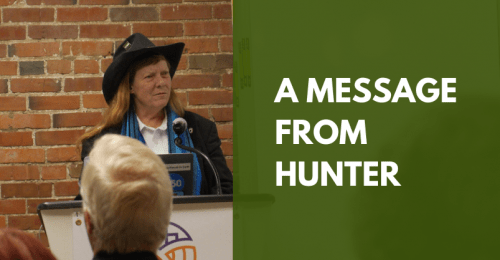By Hunter Lovins
Last night a young friend wrote me in some distress.
He’d been at an impact investment event at which I’d spoken. An audience member had asked the panel how they dealt with climate skeptics: did they still promote the climate protection philosophy behind their portfolios?
Predictably, the others equivocated.

Which pissed me off. “This,” I growled, “Is why ‘impact investing’ is getting a bad name. It’s trying to be everything to anyone who might let you manage their money.”
I described how Change Finance, the ETF company I advise, takes a very different approach: we tell the truth.
“The world is in a global climate crisis. If you don’t believe this, we don’t want you as our owners.”
I continued, “Don’t do this, because it will put you in a very bad mood, but you can read the latest climate science from the IPCC, or the Deep Adaptation report that a science journal just refused to publish saying that its readers would need therapy after reading it. Then decide for yourself if you want your money managed by people who don’t think global warming is real or who don’t see the opportunities to be seized from investing in companies that are creating the future, instead of clinging to past assets that are about to be stranded.”
Last evening, as I sat alone in a New York restaurant after teaching all day, my young friend wrote me:
Hi, Hunter.
Great to see you yesterday. Thank you for your contribution to our discussion. I often find myself equivocating about the urgency of the climate crisis, and I appreciate your ability to tell it exactly how it is.
Despite your warning, I read Deep Adaptation. For my monthly-ish email letter, I have been trying to write about “How to Live Well on a Dying Planet”. I suppose this is the challenge of my generation.
Frankly, my growing understanding of the bleakness of our situation has given me writers block. Any quick thoughts?
I put supper aside and wrote him back:
I would not phrase it as you have. The planet IS in peril, but it is not dying. Life will go on. It’s humans who are in trouble.
It is sad: we’re taking a lot of beautiful species down with us. But worst case, life will rebuild. 90% of species have gone extinct before, and we are the ultimate result of that prior extinction.
What drives me, though, is that I am a mite sentimental about this human experiment.

And we have all the technologies we need to solve this crisis IF we get about it.
And from the perspective of an investor, we can do it at a profit.
Was with Freya Williams today (the brilliant US CEO of Futerra, the best creative agency I know,). She was walking thru some research they’ve done, asking sustainability professionals and ordinary people if they think we can beat the climate crisis. Almost to a person the experts say yes. Ordinary people split to yes, yes—but we won’t and no, it’s too late. The experts know it is possible to win this one, but ordinary people are giving in to despair.
We need to inspire our friends, our neighbors to realize that the work to which you and I have committed our lives IS possible, will drive profitability, and then get them to join us to get it done.
If, on the other hand we succumb to despair, we will get to be right. We will create the collapse. Because we did not believe we could beat it and try hard enough. That is why I react so strongly to idiots like the guy who wanted to coddle deniers.
You are better than that. We’re the result of 3.5 billion years of evolution: act like it.
Go Google Alex Steffen: Talk Given To a Conservation Group 150 years from now.
Then if you still need help, call me.
Five minutes later my friend wrote back citing Alex’s words:
“When they understood the planetary crisis they faced, their answer was not cynicism or surrender, but to seek out others and together meet that crisis with action”
Thank you, Hunter. At risk of overstating, ‘Talk Given to a Conservation Group’ is one of the most important pieces of literature I have read in my life. It brought tears to my eyes and chills to my spine.
Let us work with clarity and purpose for the rest of our days. Let us find ways to bring this work to the masses.
It was one of those times when a smiley face seemed the right answer. And to finish my rapidly cooling enchilada.
Then I wrote Freya to thank her for the Climate Optimism campaign Futerra launched to help citizens gain the expertise they need to have the courage to act.
I write you this because I need your help. The colleagues I mention above are all employed by companies that pay them to do their work. Natural Capitalism is a non-profit that depends on your support. Your donation is what enables me to travel the world, work with students, set aside supper to counsel a young colleague, and then next week to climb on an airplane to go help a high-level meeting in China realize that valuing natural capital is the best way to build a vibrant eco-tourism business.
But this time I write to ask your support for a particular venture:

Our work this year is focused on the Colorado Regenerative Hub initiative. NCS is convening organizations and citizens to create a just transition for businesses moving away from extractive industries to an economy of regeneration. NCS is developing tools for help sustainable Hub businesses expand in a regenerative direction. We are reframing our “Sustainability For All” (S4All) MBA curriculum into 12 hours of eLearning for regenerative practices. Sustainability practices lead to short and mid-term profitability. Our new, supplemental eLessons and exercises will teach regenerative practices that boost long term profitability and sales through the application of circular business activity, biomimicry in both process improvement and product development, inclusive community engagement, and the principles of regenerative economics. Our audience includes family businesses and visionary entrepreneurs willing to learn and apply these new practices. Their energy and drive will ensure a well-being economy in service to life for many years to come.
My appeal to you is to help fund this innovative initiative. We already have the raw materials after years of curriculum building and in-the-field experience. What we need now is your support to make it all happen. Give what you can. Help us accelerate the impact of a regenerative economy.


Leave a Reply